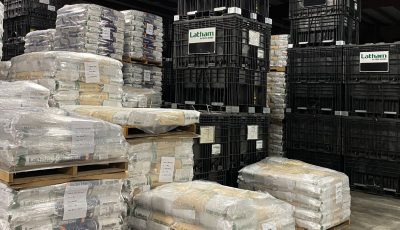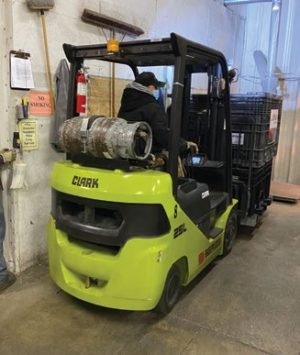
An Alexander, Iowa, seed company estimates it will gain more than $3 million in new business over the next year, partly because CIRAS helped the company become more efficient in the face of rapid growth.
Chris Latham, chief financial officer for Latham Hi-Tech Seeds, said his company struggled to keep up with its orders for soybeans and seed corn in 2019 as it expanded into new markets in South Dakota. The increased business, along with a growing trend of farmers seeking to accept their seed as close to the beginning of planting season as possible, seemed to be creating bottlenecks.
“In 2019, the late spring saved us” from being late with orders, said operations manager Dan Erbes. “If we’d have had the (earlier) spring in 2019 that we had in 2020, we would have been in trouble.”
 The company reached out to CIRAS in summer 2019 seeking help with finding more short-term capacity. That led CIRAS project managers Marc Schneider, Andrew Friend, and Steve Wilson to review Latham’s operations, diagnose the bottlenecks, and work with staff to correct them.
The company reached out to CIRAS in summer 2019 seeking help with finding more short-term capacity. That led CIRAS project managers Marc Schneider, Andrew Friend, and Steve Wilson to review Latham’s operations, diagnose the bottlenecks, and work with staff to correct them.
Among other things, Schneider’s team ultimately recommended that Latham address some workforce issues and change the way it handles conditioning and packaging of beans so that the company could begin conditioning even before orders were filled.
“What they did for this season was a good first step,” Schneider said. “But if the company continues to grow, they’ll need to continue to invest.”
Chris Latham said the changes helped the 2020 planting season run smoothly, and he praised CIRAS for playing a valuable role as an objective outside expert.
“Sometimes it’s just good to have that third party bring everybody together and agree on where the problems are,” he said. “It was nice just to be able to bring everybody in and work through it all.”
For more information, contact Marc Schneider at maschn@iastate.edu or 563-221-1596.
A version of this article was published in the Winter 2021 edition of CIRAS News. To read more of that edition or others, please explore elsewhere on our website.